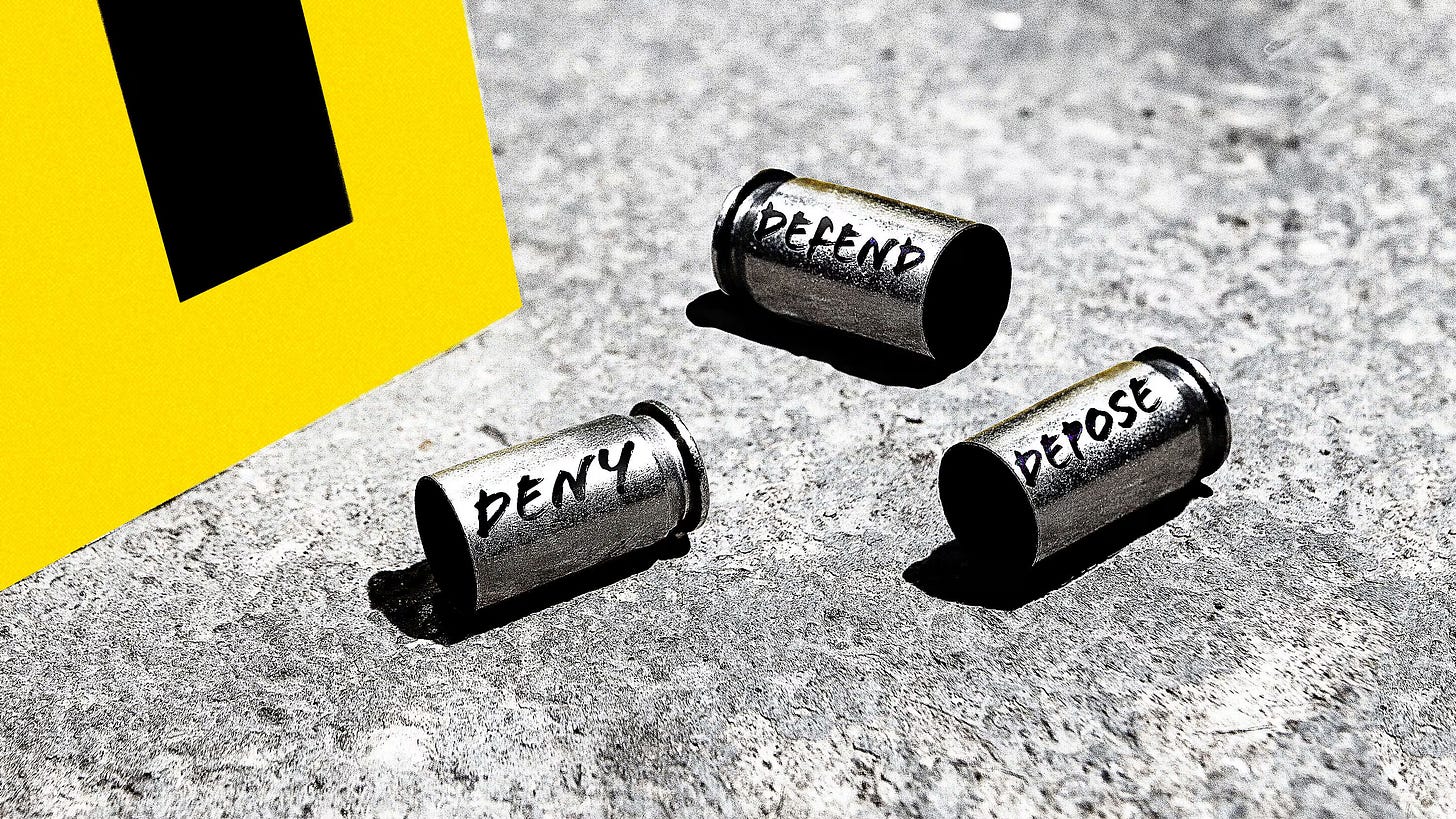Biting the Bullets: Or, How I Learned to Stop Worrying and Love the Blood
Spilling my guts on the UnitedHealthcare CEO Assassination
Upgrade to paid to play voiceover
Image credit: Photo Illustration by Victoria Sunday for The Daily Beast/Getty Images
I came down with a cold last Tuesday. Other than the fact that it sucks to be sick and depleted on the first week back at college after Christmas Break, this cold has proven to be somewhat funny because now, when I speak, my voice cracking gives my words extra dramatic e…
Keep reading with a 7-day free trial
Subscribe to Isaac Bashevis Syndrome to keep reading this post and get 7 days of free access to the full post archives.




